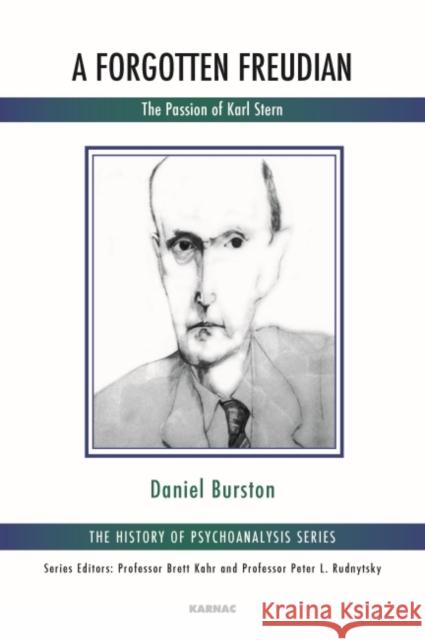A Forgotten Freudian: The Passion of Karl Stern » książka
A Forgotten Freudian: The Passion of Karl Stern
ISBN-13: 9781782203469 / Angielski / Miękka / 2016 / 280 str.
A Forgotten Freudian: The Passion of Karl Stern
ISBN-13: 9781782203469 / Angielski / Miękka / 2016 / 280 str.
(netto: 167,88 VAT: 5%)
Najniższa cena z 30 dni: 174,11
ok. 22 dni roboczych.
Darmowa dostawa!
This book explores the life and work of a neglected figure in the history of psychoanalysis, Karl Stern, who brought Freudian theory and practice to Catholic (and Christian) audiences around the world.
Karl Stern was a German-Jewish neurologist and psychiatrist who fled Germany in 1937 - first to London, then to Canada, where he taught at McGill University and the University of Ottawa, becoming Chief of Psychiatry at several major clinics in Ottawa and Montreal between 1952 and 1968, when he went into private practice. In 1951 he published The Pillar of Fire, a memoir that chronicled his childhood, adolescence and early adulthood, his medical and psychiatric training, his first analysis, and his serial flirtations with Jewish Orthodoxy, Marxism and Zionism - all in the midst of the galloping Nazification of Germany. It also explored the long-standing inner-conflicts that preceded Stern's conversion to Catholicism in 1943.
The Pillar of Fire was a run-away best seller, and was followed by a series of remarkable books and papers that recommend Freud (and psychoanalysis generally) to Christian audiences, including The Third Revolution (1954), The Flight from Woman (1965) and Love and Success (1975). Stern firmly believed in the compatibility of science and faith, and was a star of the Catholic lecture circuit, where he often spoke about the evils of anti-Semitism. His friendship and correspondence with Thomas Merton, psychiatrist/psychoanalyst Gregory Zilboorg, philosophers Jacques Maritain and Gabriel Marcel, activist Dorothy Day and novelist Graham Greene (among others) shed considerable light on Catholic intellectual life in the Cold War era, and the difficulties facing Stern, whose simultaneous efforts to combat Christian anti-Semitism and to integrate Freudian thought into the core of Catholic philosophy met with mixed results.











